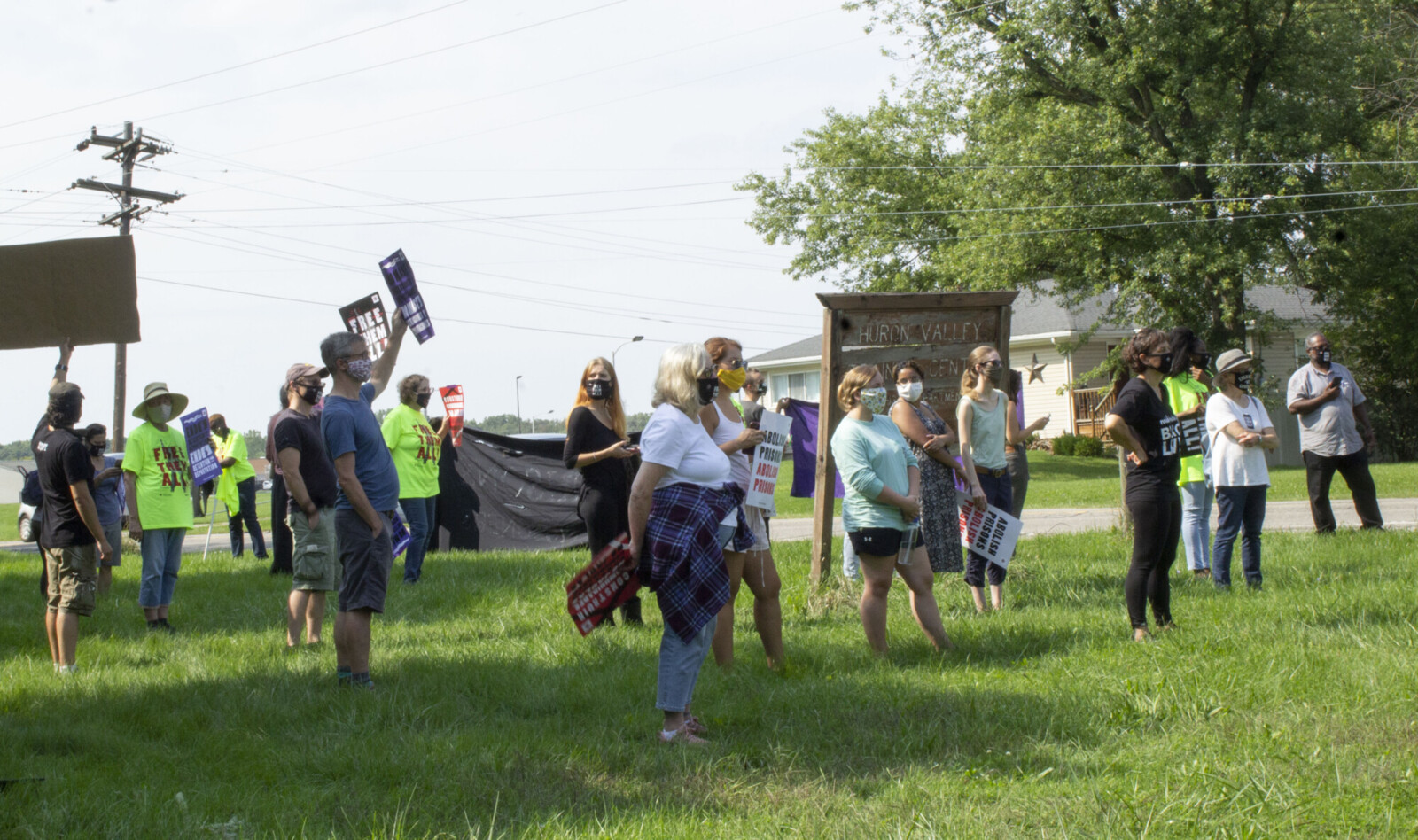
YPSILANTI, MI (October 21, 2021) This week, Michigan Governor Gretchen Whitmer released, in direct cooperation with the Michigan Department of Corrections, an expansion of “Maternal and Post-Partum Healthcare for Prisoners.” This new policy allows nursing in the visiting room, extends access to pumping, limits restraint use, allows a loved one support person and doula to be present during birth, enforces access to perinatal and postpartum care, creates training protocols for staff, and makes difficult to directly remove an infant from a parent after birth or to segregate someone in isolative conditions.
A group of stakeholders – including the American Friends Service Committee - Michigan Criminal Justice Program, Siwatu's Freedom Team, Southeast Michigan IBCLCs of Color, Prison Birth Project, Mothering Justice, Mama’s Mobile Milk, Michigan Breastfeeding Network, Safe and Just Michigan, Cassy Jones-McBryde, and Planned Parenthood Advocates of MI – have been working for many years to improve conditions for pregnant people in Michigan prisons. While they applaud this directive from Governor Whitmer, they are calling for the passage of legislation that would offer broader protections. They released the following statement:
“As a group of stakeholders who have been working to pass legislation with the full support of Senator Erika Geiss for nearly four years, we applaud this small step forward towards safeguarding pregnant people, their babies, and families.
"The legislation on which this policy directive is based was thoughtfully crafted with Senator Geiss and her staff. It addressed many more issues faced by pregnant people who are incarcerated, including the creation of a human milk transport program that would allow postpartum people to pump their milk, store it, and have it distributed to their infants. This missing element of the policy would create life-giving opportunities for already traumatized infants, as human milk is medicine. The infant mortality rate among the infants of incarcerated individuals is over twice the national average, and breastfeeding is a key strategy for the prevention of infant deaths. Human milk saves lives and must be treated as a public health imperative, especially among our most vulnerable infants.
"To applaud the reduction of restraint use on pregnant people is not enough. Shackling at any time during pregnancy directly counters evidence-based best medical practice. The harms of shackling pregnant people are well-established, with resulting physical and psychological trauma. While this policy directive limits the type, duration and locations where pregnant people can be restrained, it allows for shackling to persist. In line with recommendations from all major medical professional organizations, our collective firmly believes there must be a ban on the use of security restraints at any time in pregnancy, birth and after birth, without justification.
"We also fully acknowledge that we want to build systems of community care – not confinement – for all of Michigan’s people who cause harm in their communities, especially for pregnant people and other vulnerable populations.
"Further, in addition to the Standards of Care for Pregnant People Bill, we recommended an oversight mechanism for the women’s prison. It is widely understood that Michigan's prisons exist in vacuum-like conditions with little outside oversight. COVID-19 has only exacerbated the opaqueness of our prison system. Senate Bill 487 would create an oversight commission dedicated to monitoring proper implementation of all policy directives, living conditions, and treatment of people at the chronically overcrowded and only women’s prison in Michigan, Women’s Huron Valley. We are hopeful Senator Victory will schedule a committee hearing for the oversight bill to start the process of establishing this necessary oversight of MDOC.
"We are grateful for the new policy directive and also must amplify the reality that Governor Whitmer could do much more to relieve the overcrowded conditions at Women’s Huron Valley and move towards a less populated system. For example, she could – and should – use her commutation powers to allow long-serving women to have a chance at freedom. As the COVID-19 pandemic continues to wreak particular havoc within the Michigan prison system, Governor Whitmer could instruct the parole board to medically parole all pregnant people sentenced to state prison, in order for them to receive care and treatment in their communities. A new Sentencing Project report found that Michigan ranks number four in the nation for the number of women serving life without parole (173 women total and 8.7% of the total national LWOP population). People serving long sentences are the least likely to recidivate and would be assets in our economically strapped and struggling communities.
"In the interim – while we wait for policies rooted in the shared values of redemption, forgiveness, and saying no to tortuous conditions to come out of the executive office – we applaud momentum toward better standards of care for pregnant people.
"The coalition of stakeholders involved in crafting the draft legislation that created, in part, this policy directive, is committed to eradicating the imprisonment of pregnant people and caregivers of children. We have a shared vision and fully hope Governor Whitmer will take direction from those most impacted by the punitive-based prison system in the coming months. We look forward to continuing to provide our expertise and experience, with cautious optimism that the Whitmer administration will uphold its stated commitments to health and racial equity, particularly among Michigan’s extremely vulnerable incarcerated pregnant population.”
###
The American Friends Service Committee (AFSC) promotes a world free of violence, inequality, and oppression. Guided by the Quaker belief in the divine light within each person, we nurture the seeds of change and the respect for human life to fundamentally transform our societies and institutions.